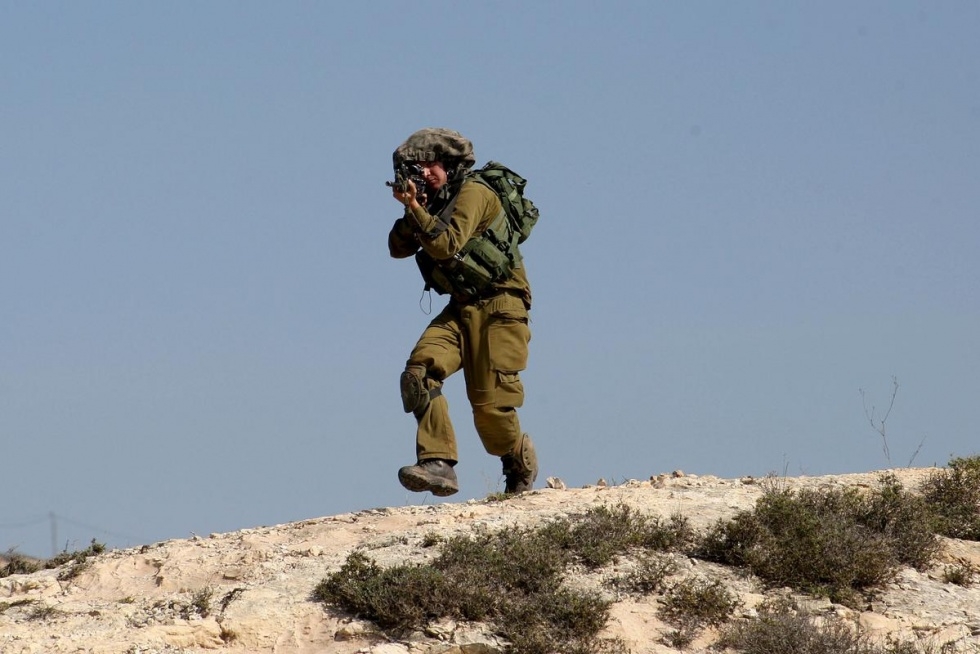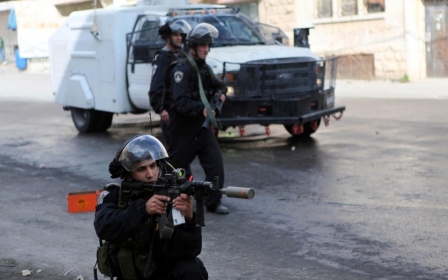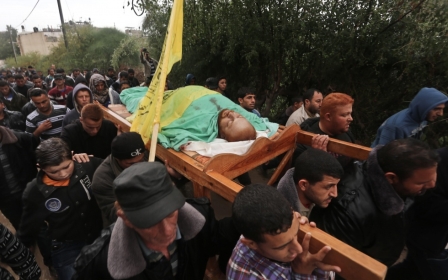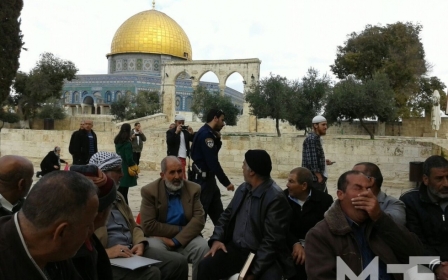NGOs accuse Israel of shoot-to-kill policy

Human rights groups have accused Israel of encouraging a shoot-to-kill policy after a wave of incidents in which police shot dead Palestinians involved in, or accused of, attacking Israelis.
The alleged practice of killing suspects without trying to arrest them has caused concern after a series of deadly Palestinian attacks also resulted in the perpetrators' deaths -- and not always at the scene.
In a rare move, a Jerusalem court on Sunday indicted a border police officer after he shot and killed, apparently unprovoked, a Palestinian during a May demonstration in the occupied West Bank.
For some, the charge of manslaughter in the case was not strong enough, and Public Security Minister Yitzhak Aharonovitch's comments that "a terrorist who strikes civilians should be killed" indicate no further such investigations will take place.
"Aharonovitch's statement and its application on the ground show that the authorities simply want these incidents to end - with the terrorist killed at the scene rather than brought into the justice system," Carolina Landsmann wrote in Haaretz newspaper.
Israeli rights group B'Tselem says that one of the first victims of "extrajudicial executions" was Abdelrahman Shaludi, a 21-year-old Palestinian from east Jerusalem who deliberately rammed his car into Israeli pedestrians on October 22, killing a young woman and a baby.
He was shot at the scene by police and died several hours later.
CCTV footage
Earlier this month, police shot dead 22-year-old Arab Israeli Kheir Hamdan during a routine arrest, saying he attacked them with a knife.
However, CCTV footage showed him banging on the outside of a police van with a knife before turning away, as a police officer got out and shot him in the back.
Last week, two Palestinians stormed a synagogue with meat cleavers and a gun, killing four rabbis at prayer and a policeman who came to their rescue. They were shot dead at the scene by police.
None was brought to trial, and the suspects' families face the likelihood of having their homes razed in a punitive measure abandoned in 2005 after the army said there was no proof it had any deterrent.
Police say the killings of suspects were lawful and in self-defence.
"According to the law... when the danger is real, immediate and threatens the life of a police officer or innocent people, he can shoot," spokeswoman Luba Samri told AFP.
"It's kill or be killed."
But Amnesty International told AFP it had "strong suspicions" about a policy of "deliberate killings", even though "the authorities have the absolute duty to ensure that their forces comply with the law".
'Excessive force'
Even aside from the latest deadly attacks, the number of shootings of Palestinians by soldiers in the occupied West Bank has risen, Amnesty's Saleh Hijazi said.
"In dealing with the Palestinians, (police and soldiers) use excessive force," he said.
Rights groups say Aharonovitch's remarks have been instrumental in formulating attitudes in the field, particularly those he made to reporters on November 5 at the scene of the second hit-and-run attack in Jerusalem in a fortnight.
"The action of the border police officer who chased the terrorist and quickly killed him is the right and professional action, and that is the way I would like these incidents to end," he said.
Three days later, Hamdan was shot dead in what many saw as the minister's words being put into action.
B'Tselem said it was "extremely disturbed" by Aharonovitch's comments, which it described as "provocative" and encouraging "execution without trial".
Israeli rights group ACRI said in a statement the expectation that "police officers will act as jury, judge and executioner, is improper and unacceptable".
According to Landsmann, Israel is also keen to avoid another prisoner swap deal in which it would have to free Palestinians convicted of killing Israelis -- as in 2011 when it released more than 1,000 prisoners in exchange for Gilad Shalit, a soldier held by Hamas militants for more than five years.
"The best way to avoid releasing prisoners is not to arrest them to begin with," she wrote.
Israeli stabbed in east Jerusalem
Meanwhile, an Israeli student of a Jewish seminary was stabbed in the Old City of annexed east Jerusalem late Monday, leading to the arrests of three alleged Palestinian assailants, police said.
The Israeli suffered serious wounds when he was attacked by several Palestinians at the yeshiva, or seminary, where he studied in the Old City, the police said.
"At this stage of the investigation all leads are possible, but it points to being a case of a fight between two parties," said police spokeswoman Luba Samri.
Another Israeli student of the yeshiva was lightly wounded, and three Palestinians suspected of carrying out the attack were arrested, including two minors, said the spokeswoman.
New MEE newsletter: Jerusalem Dispatch
Sign up to get the latest insights and analysis on Israel-Palestine, alongside Turkey Unpacked and other MEE newsletters
Middle East Eye delivers independent and unrivalled coverage and analysis of the Middle East, North Africa and beyond. To learn more about republishing this content and the associated fees, please fill out this form. More about MEE can be found here.




